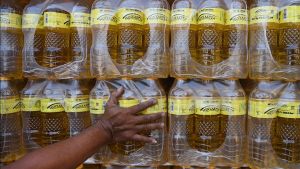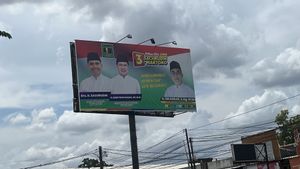JAKARTA - Bank Indonesia (BI) has just completed the Board of Governors Meeting (RDG) which was held for two days, February 17-18. One of the most awaited important decisions is related to the government's plan to impose government-borne luxury goods sales incentives (PPnBM-DTP), especially for motorized vehicles.
The tax collection policy is then transmitted in the form of eliminating down payments (DP) for consumers who wish to own a vehicle through a credit mechanism. This means that people who want a car or motorcycle loan can get their dream vehicle without having to give DP at all, aka 0 percent DP.
Although there is no definite stipulation issued by the government regarding DP 0 percent, at least the direction of the policy can be drawn.
VOI noted that Bank Indonesia was the first entity to explicitly support the policy of eliminating down payments for people who wanted to own a vehicle. BI Governor Perry Warjiyo has even agreed that a down payment of at least 0 percent is applied to all types of vehicles.
"Loosening the provisions for down payment for motor vehicle credit / financing to at least 0 percent for all types of new motorized vehicles, to encourage credit growth in the automotive sector while still paying attention to the principles of prudence and risk management, effective March 1, 2021 to December 31, 2021. , "He said in a virtual press conference, Thursday, February 18th.
In the material attachment, Bank Indonesia sets out five objectives and backgrounds for this attitude. First, with the latest developments both globally and domestically, Bank Indonesia will continue its accommodative policy mix in line with efforts to promote economic recovery while maintaining financial system stability.
Two, the need to boost recovery, particularly in the automotive sector, and pay attention to the fact that this sector has high backward and forward linkages to the economy.
Three, the policy was adopted as a policy mix with fiscal stimulus provided by the government, including incentives for luxury goods sales tax (PPnBM).
Four, the easing also takes into account the manageable credit / financing risk in the automotive sector.
And the fifth is the relaxation of the KKB down payment, which must pay attention to the principles of prudence and risk management.
In the editorial analysis, the 'sale' carried out by the monetary authority is believed to be related to the sluggish national credit realization in the last two months. In fact, credit is believed to be one of the motors in driving the economy.
To note, Bank Indonesia previously was the most aggressive institution in setting credit growth targets.
At the beginning of the year, Perry Cs agreed that the intermediation function in 2021 could touch 7 percent to 9 percent year-on-year (yoy). Compare this with the Financial Services Authority (OJK), which estimates that between 7.5 percent plus minus 1 percent, and the banking industry at 7.13 percent.
However, in this week's RDG, the monetary authority chose to be conservative by cutting its projection to 5 percent to 7 percent.
"(The decrease in the credit target) is reflected in the contraction in credit in January 2021 of 1.92 percent yoy compared to a contraction of 2.41 percent yoy in December 2020," said the BI Governor.
It seems that BI is the first agency to realize that the intermediation function has the potential to slope over the year, or even be under pressure, if it is not accompanied by aggressive policy initiatives.
Apart from the credit scenario, the central bank also reports that it has cut the national economic growth forecast from the previous 4.8 percent to 5.8 percent to 4.3 percent to 5.3 percent based on the assumption that domestic demand is still weak.
Separately, OJK itself still does not have the courage to talk much about PPnBM-DTP incentives. Through the Chief Executive of Banking Supervision Heru Kristiyana, the authority only provided a statement that it would accommodate the government's initiative on the tax policy.
"Later we will support and adjust it by lowering the RWA (weighted assets according to credit risk) of motorized vehicles with qualifications," he said.
Although the OJK does not specify when the regulation will be released, it is certain that the regulation in question will be completed this month considering that the implementation of PPnBM-DTP for motor vehicles will take effect on March 1.
As previously reported, the incentive policy for motor vehicle taxation is said to target the ≤ 1,500 cc segment of the sedan and 4x2 categories. This segment was chosen because it is a category that is of interest to the middle class and has local purchases of more than 70 percent.
The tax discount is carried out in stages until December 2021, provided that 100 percent of the normal rate will be given in the first three months. Then, 50 percent of the normal rate for the following three months, and 25 percent of the normal rate in the third stage for the next four months.
The English, Chinese, Japanese, Arabic, and French versions are automatically generated by the AI. So there may still be inaccuracies in translating, please always see Indonesian as our main language. (system supported by DigitalSiber.id)













